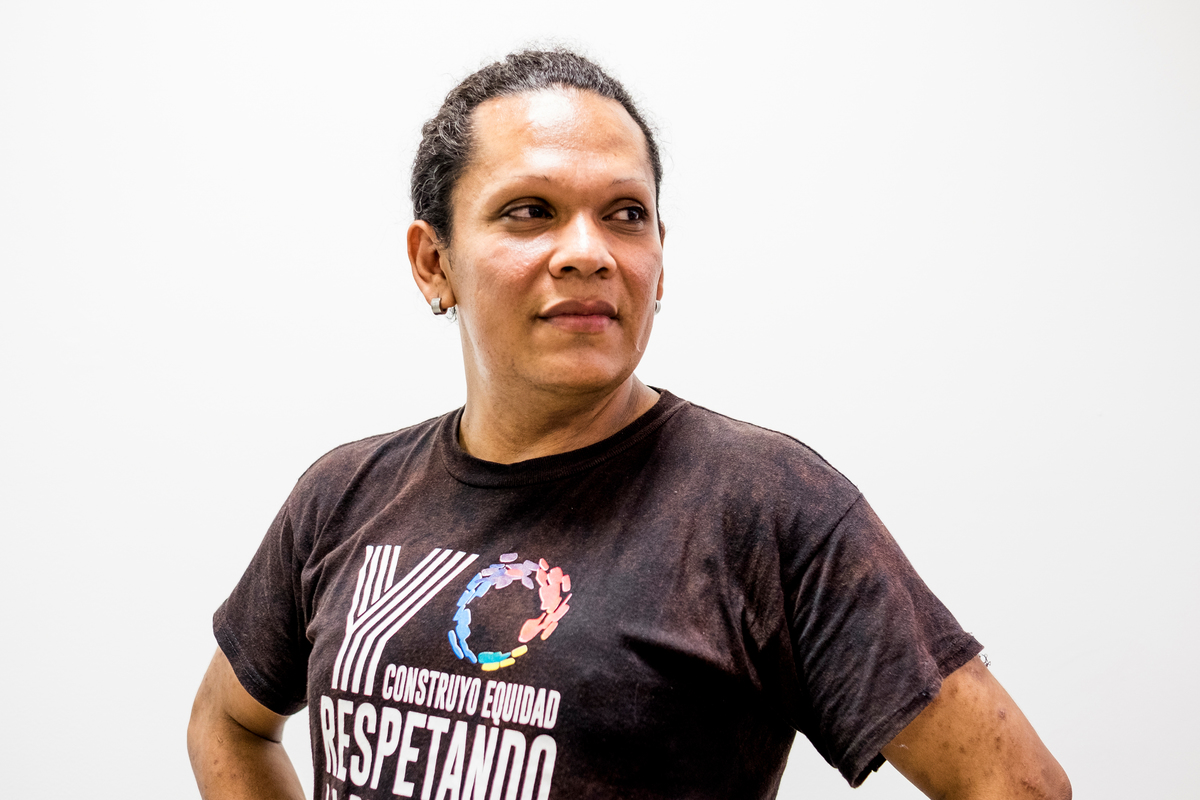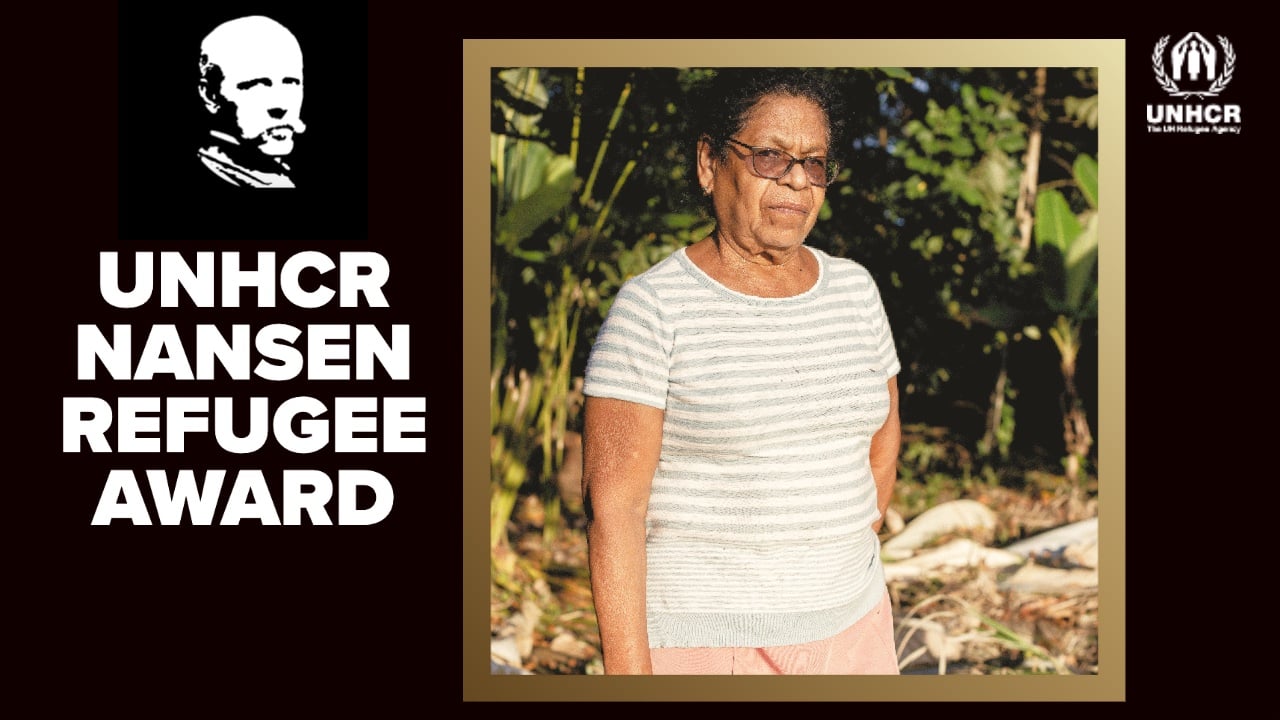Salvadoran transgender activist takes stand against violence

Salvadoran transgender activist takes stand against violence
After surviving three assassination attempts, Salvadoran transgender activist Karla Avelar keeps moving from home to home to try to avoid another. With threats received by phone, online, and in writing, she has changed house four times in the last year alone.
“I have survived three assassination attempts, but I don’t think I’ll survive the fourth,” says Avelar, 38, showing the bullet and stab wounds that cover her body.
Avelar says that she cannot rely on protection from the police, claiming that Salvadoran officers rarely take attacks on transgender people seriously. Law enforcement is also overwhelmed in what has become the country with the highest murder rate in the Western hemisphere, with more than 6,000 homicides last year in a nation of just six million. And to add to her struggles, Avelar lives with HIV.
Yet despite the constant threats, Avelar goes on fighting, not only for her own life but for others like her, heading the activist group the Association for Communication and Training of Trans, known by its Spanish-language acronym COMCAVISLink is external. Her story and research illustrate the major problems in El Salvador facing LGBTI people – the term that describes lesbian, gay, bisexual, transgender and intersex individuals – and drive many to run for their lives.
“I have survived three assassination attempts, but I don’t think I’ll survive the fourth."
LGBTI people, especially the more visible transgender women, not only face attacks from people motivated by hate in a region with a long history of homophobia. They also face shakedowns from members of the bloodthirsty Mara Salvatrucha gang. The violence forces many, like Avelar, to flee their homes and move within their country or seek asylum abroad.
“There is a very high number of LGBTI persons that are trying to escape and find a safer place to live because they are subject to persecution based on their sexual orientation,” says Elisa Carlaccini, who heads the office of UNHCR, the UN Refugee Agency, in El Salvador.
The first assassination attempt against Avelar came in 1992 when she was a teenager, following a spate of killings of transgender women in what were believed to be hate crimes by a serial killer. When the assailant drew a .45 calibre pistol on Avelar, she managed to disarm him. However, he drew a second pistol and shot her nine times. A security guard found her bullet-ridden body on the street. “I was lucky,” she says.
The second attack came in 2008 from the Mara Salvatrucha street gang. Avelar had become a sex worker, and the gang demanded a weekly protection payment of US$25 from her and her companions. Avelar refused.
“They threatened me and eight days later, they tried to kill me,” she says.
In this attack, they shot her five times. Yet she not only survived but became a public figure denouncing attacks on transgender individuals by the gangs. “They (the gang members) developed a deep hatred for me. They were determined to kill me,” she says.
The gang members tried again in 2012, sneaking up on her and stabbing her with two knives. Again, she survived, and carried on raising public attention to the violence.
In addition to the deep scars, the attacks caused injuries to her intestines, liver and a lung, forcing her to undergo various surgeries and suffer on-going complications. But she says that the psychological damage can be even worse. “Every day I have to look at myself and see the scars, which have marked me for life and make me cry,” she says.
The number of people fleeing gang and other violence in El Salvador, Guatemala and Honduras has surged to levels not seen since armed conflicts wracked the region in the 1980s. In 2015 alone, asylum-seekers from this region topped nearly 110,000 – a more than five-fold increase over three years.
“There is a very high number of LGBTI persons that are trying to escape and find a safer place to live."
Most of them sought safety in Mexico and the United States, as well as Belize, Costa Rica, Nicaragua and Panama. Many, like Avelar, have been forcibly displaced inside their own countries. UNHCR recognizes that among the most vulnerable are displaced LGBTI people, although there is a lack of data on how many are in need of assistance.
For its part, UNHCR recently rolled out the largest and most comprehensive training package of its kind for staff and the wider humanitarian community working with forcibly displaced LGBTI people. It has also provided an overview of its progressLink is external made in protecting LGBTI refugees and others of concern.
Inside the LGBTI community in Salvador, many others have suffered similar attacks to Avelar, including her friend Tania Vazquez, who was shot in the head in 2013 and died instantly. Since 1993, as many as 600 members of the community have been murdered in Salvador, according to COMCAVIS.
Avelar complains that a key problem is that police do not take investigations into attacks on LGBTI people seriously. In a survey of Salvadoran policeLink is external officers, 73 per cent of respondents said they believed that homosexuality was a mental disease.
“I feel that my country owes me something, and this stops me from leaving.”
However, the government is at least trying to improve policing in this area. A 2015 to 2019 security plan includes a target of creating better police relations with the LGBTI community. In October, a judge sentenced two police officers to four years in prison each for beating a transgender man.
Meanwhile, LGBTI people continue to flee from the attacks against them. According to COMCAVIS, at least 29 LGBTI individuals left their homes in Salvador because of violence in the first quarter of 2016 alone.
While some apply for asylum in other countries, claiming to be members of a distinct and persecuted social group, Avelar opted to remain in her native El Salvador, where she moves home frequently.
“I feel a mix of pride and pain,” she says, looking back over a tumultuous life that she is determined to make count. “I feel that my country owes me something, and this stops me from leaving.”








